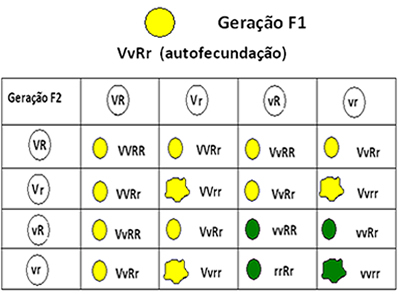THE Gaia hypothesis it was elaborated by the english scientist James Lovelock in 1979, and strengthened by the studies of the American biologist Lynn Margulis. This hypothesis was named gaia because, in Greek mythology, Gaia was the Earth goddess and mother of all living beings.
According to the hypothesis, planet Earth is a huge living organism, able to obtain energy for its operation, regulate its climate and temperature, eliminate its debris and fight its own diseases, that is, like other living beings, an organism capable of self-regulating. According to the hypothesis, biotic organisms control abiotic organisms, so that the Earth is kept in balance and in conditions conducive to sustaining life.
THE Gaia hypothesis it also suggests that living beings are capable of modifying the environment in which they live, making it more suitable for their survival. Thus, the Earth would be a planet whose life would control the maintenance of life itself through mechanisms of feedback and of diverse interactions.
One of the arguments used by defenders of this hypothesis is the fact that the composition of the atmosphere today seems to depend mainly on living beings. Without the presence of photosynthesizing beings, the carbon dioxide (CO) content2) in the atmosphere would be very high, while nitrogen (N2) and oxygen (O2) would have very low concentrations. With the presence of photosynthetic beings, the CO rate2 decreased, considerably increasing the levels of N2 it's the2 available in the atmosphere. This CO reduction2 favors the planet's cooling, since this gas is the main responsible for the greenhouse effect, influencing a lot the planet's temperature. According to this argument, life itself interfered with the composition of the atmosphere, making it more suitable for the survival of organisms.
Do not stop now... There's more after the advertising ;)
Although many scientists agree with this hypothesis, others do not accept it, disagreeing with the idea that the Earth is a "superorganism". One of the arguments used by these scientists is that not only biological factors shape the planet, but also geological factors, such as volcanic eruptions, glaciations, comets crashing against the Earth, which have changed and are still profoundly changing the aspect of the planet.
Disagreeing or not, the Gaia hypothesis draws our attention to the relationships between living beings and the environment, and especially to the relationships between our species and other living beings. Therefore, let us use this hypothesis to reflect on the impacts that our activities are causing on planet Earth.
By Paula Louredo
Graduated in Biology
Would you like to reference this text in a school or academic work? Look:
MORAES, Paula Louredo. "The Gaia Hypothesis"; Brazil School. Available in: https://brasilescola.uol.com.br/biologia/hipotese-gaia.htm. Accessed on June 28, 2021.

